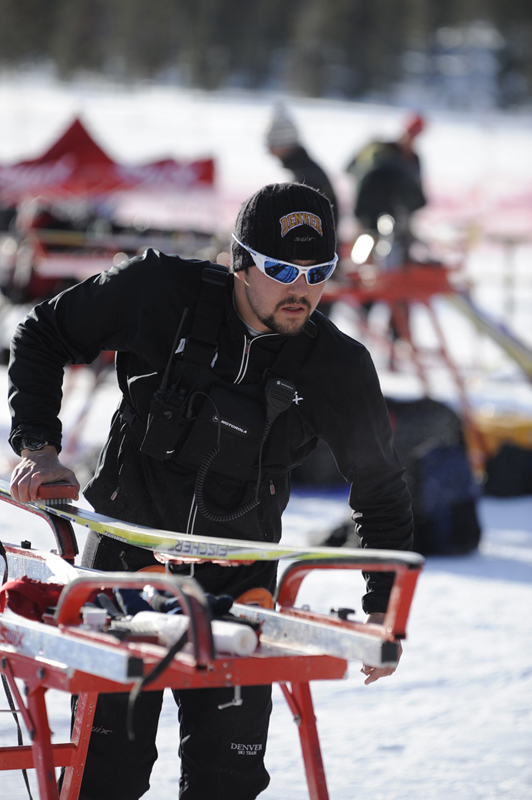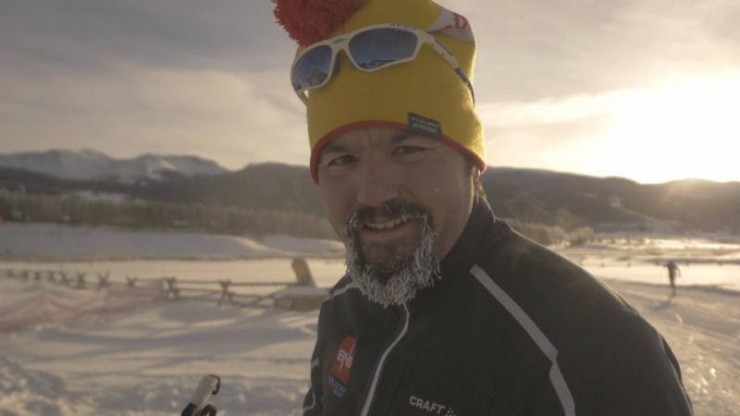
In mid-April, Hennie Kashiwa, a 31-year-old Colorado native, was named the new executive director of the National Nordic Foundation (NNF). The Kashiwa name has been synonymous with snow and skis for generations — Hennie is no stranger to the business and coaching sides of cross-country skiing. He comes to NNF having coached at the NCAA Division I level as well as spending five years in the “industry” working at Boulder Nordic Sport.
On its website, NNF has posted a succinct and singular mission: “The NNF’s mission is to support athletic excellence in developing nordic athletes in the United States.”
It’s Kashiwa’s job, officially beginning May 1, to fulfill that mission while working with outgoing executive director James Southam. For Kashiwa, one key component of realizing mission success will be expanding the NNF’s presence by broadening its scope of funders.

Tobias Albrigtsen, Boulder Filming
Speaking about a specific pitch he’d give potential donors relates to Olympic medal count.
“One example of a pitch, depending on who you are talking to: cross-country skiing, well, not just cross-country skiing, but nordic skiing. It’s important to remember that nordic combined has given us more nordic medals than cross-country at this point, there’s more medal opportunities in the nordic sports than any other skiing events,” Kashiwa said. “If we really want to boost our medal count, supporting our cross-country and nordic combined skiers should be a priority.”
As the U.S. Ski Team boasts a powerhouse women’s team and skiers like Simi Hamilton, who finished 10th overall on the Sprint World Cup, breaking through on the men’s side, it still remains vital for U.S. cross-country skiing to maintain a steady pipeline of skiers able to graduate to the international skiing stage. Historically, the NNF has helped fund those aspirations.
In this podcast, Kashiwa explains what he brings to the NNF and where how he sees the organization evolving.
Jason Albert
Jason lives in Bend, Ore., and can often be seen chasing his two boys around town. He’s a self-proclaimed audio geek. That all started back in the early 1990s when he convinced a naive public radio editor he should report a story from Alaska’s, Ruth Gorge. Now, Jason’s common companion is his field-recording gear.



